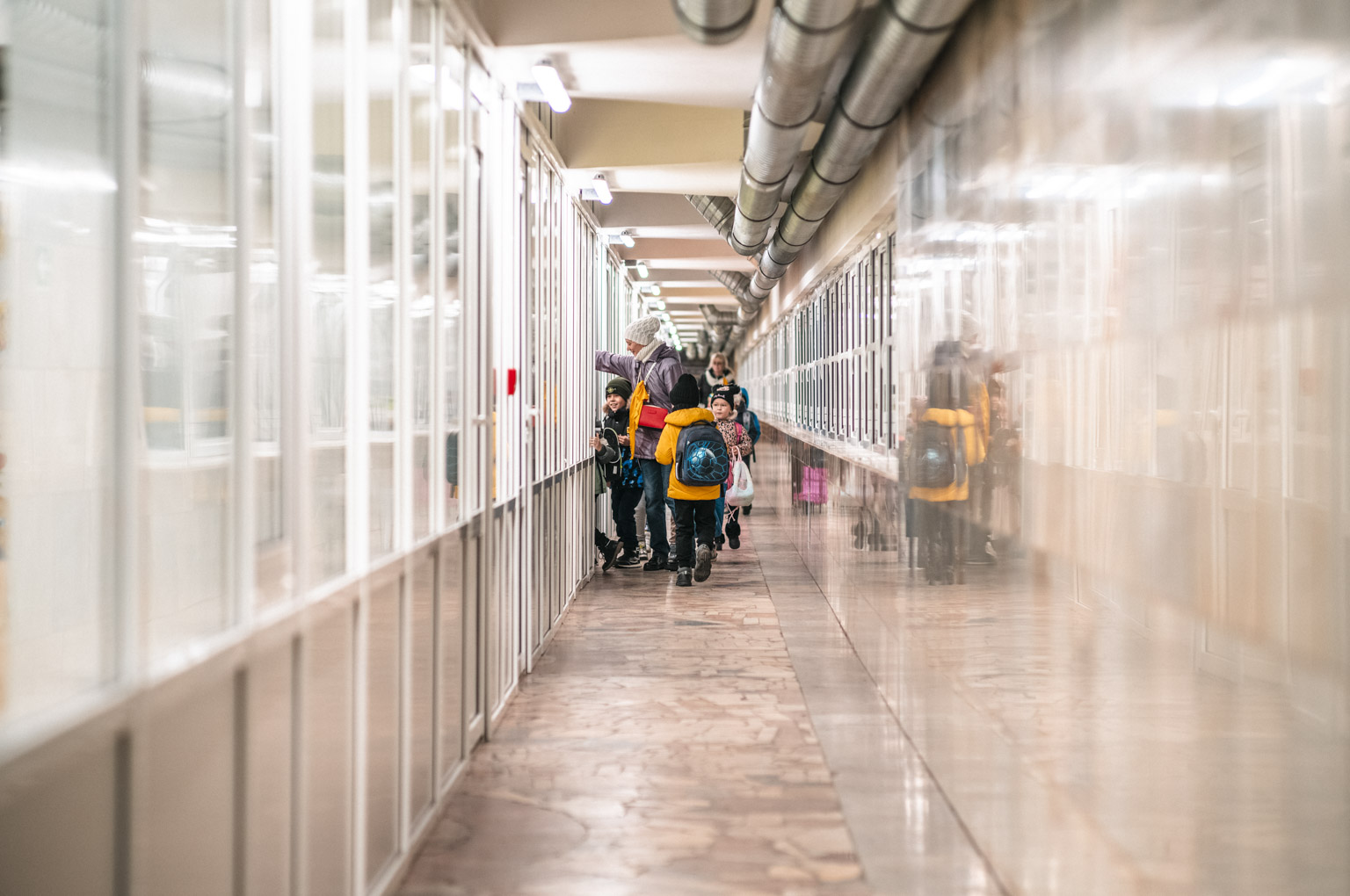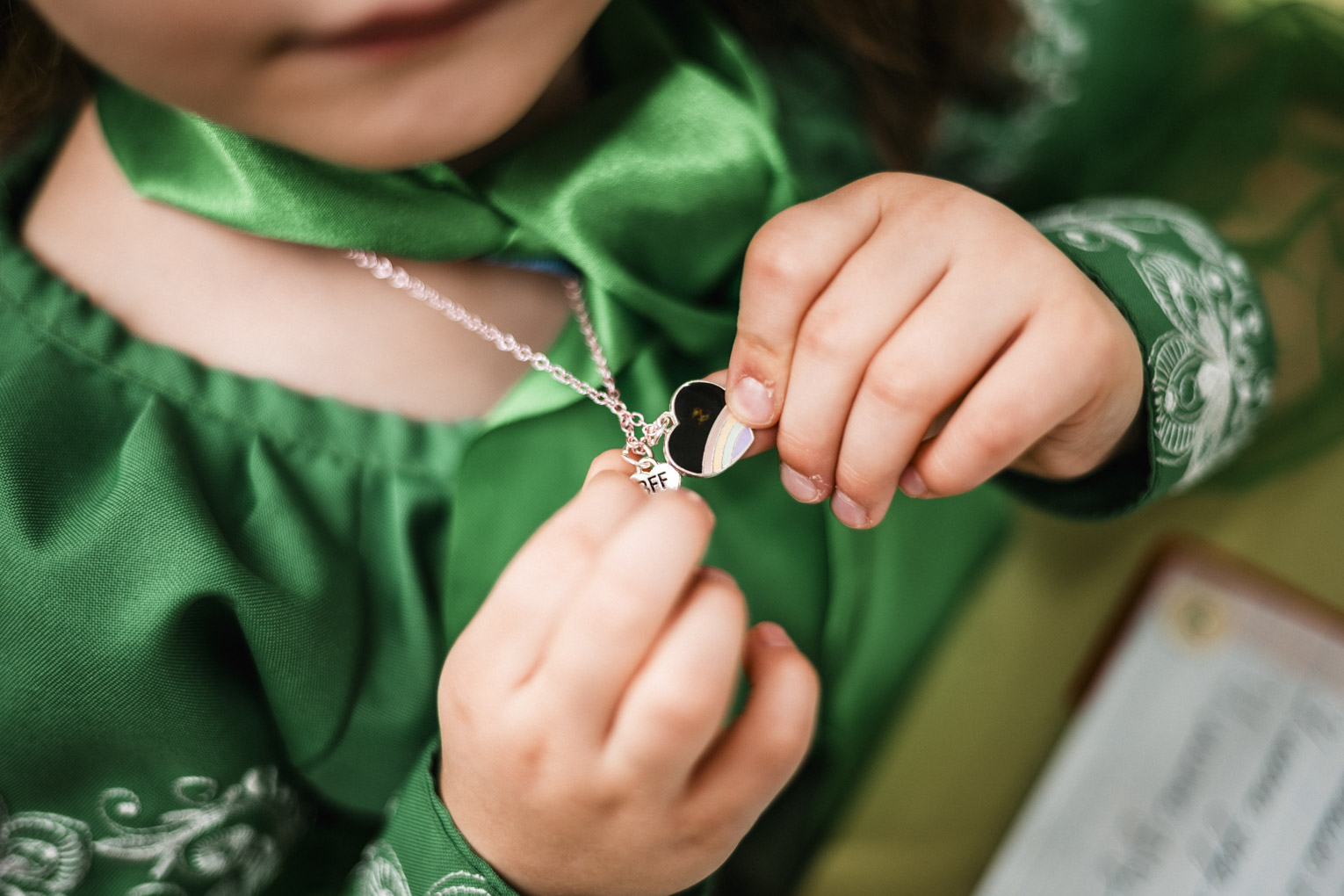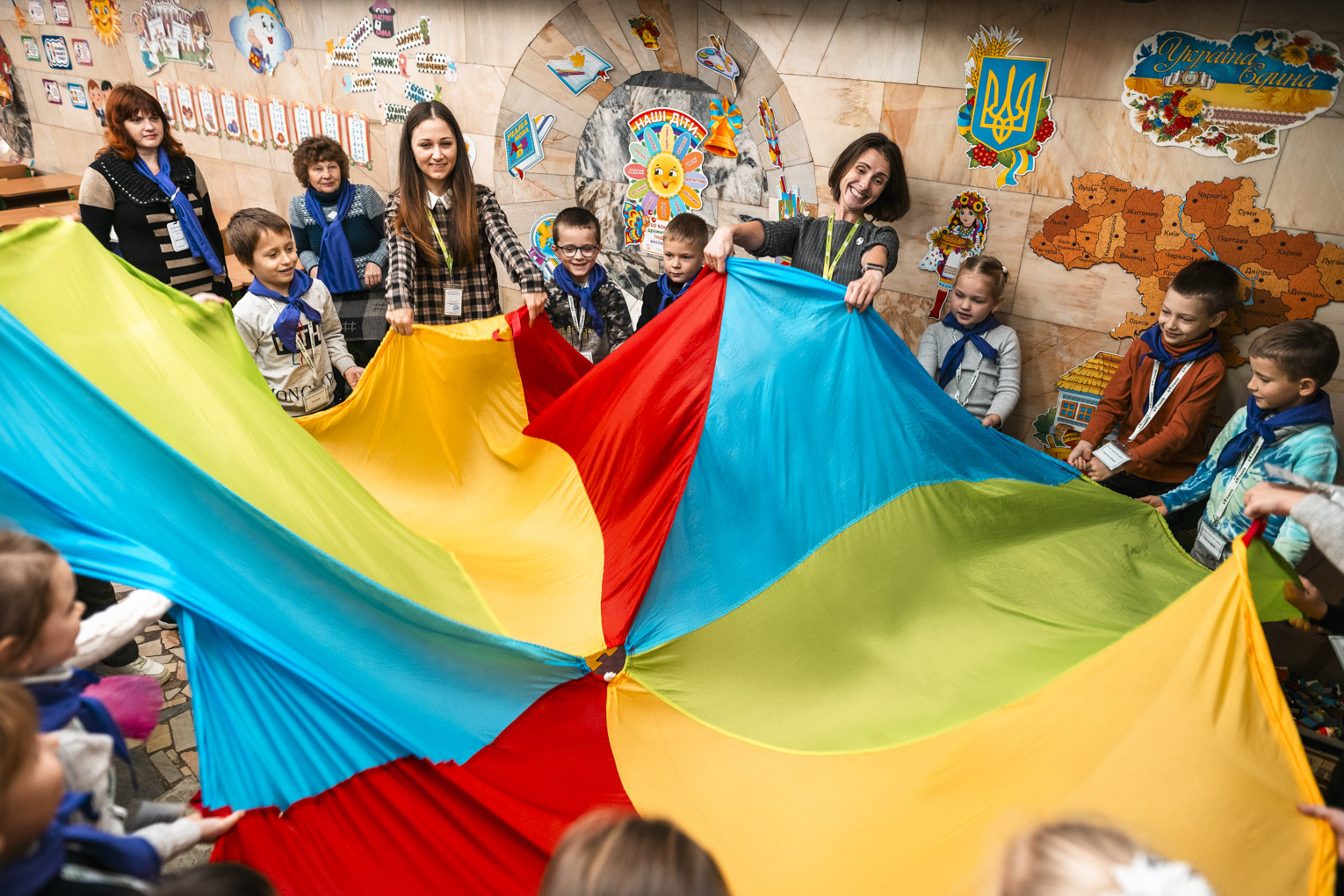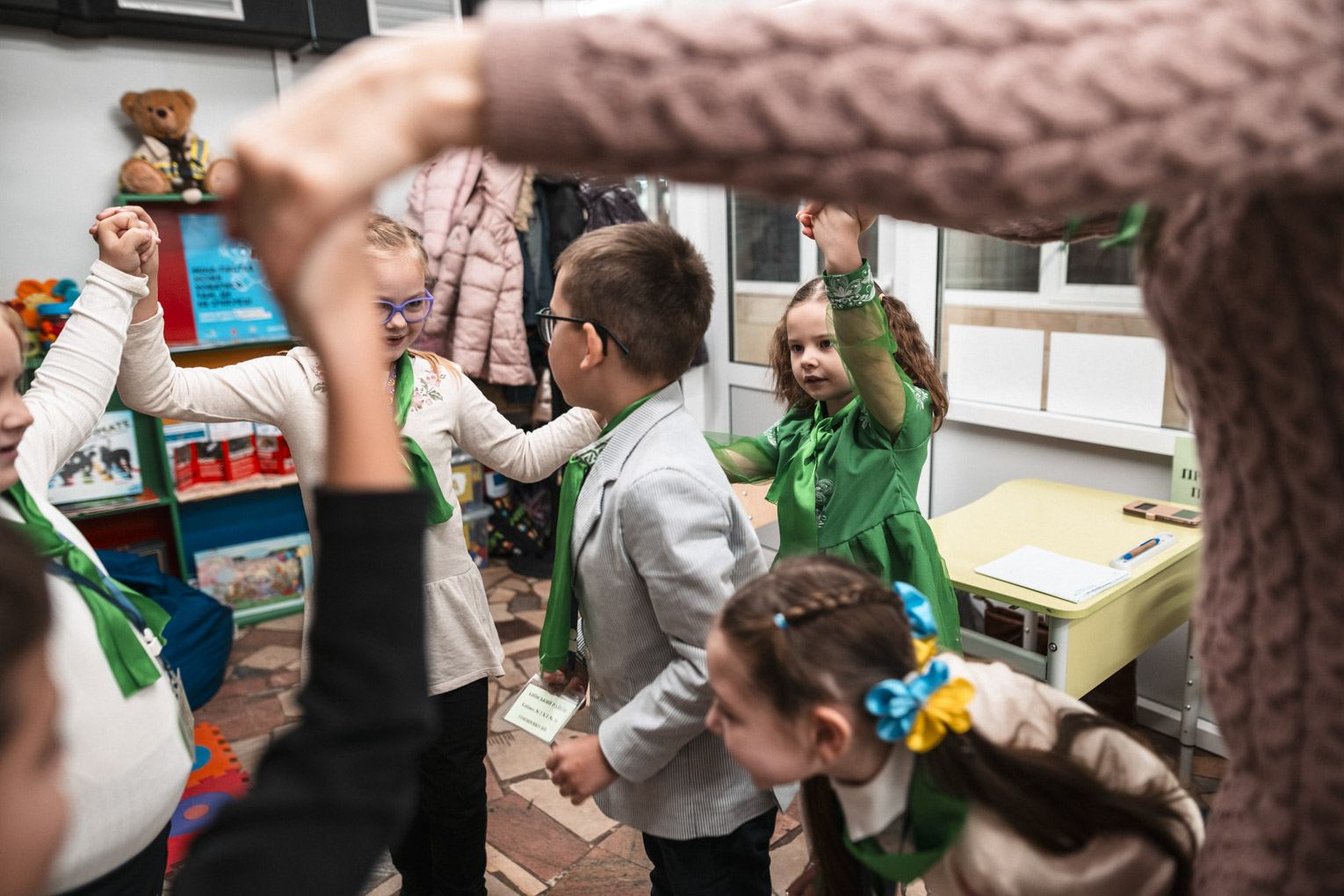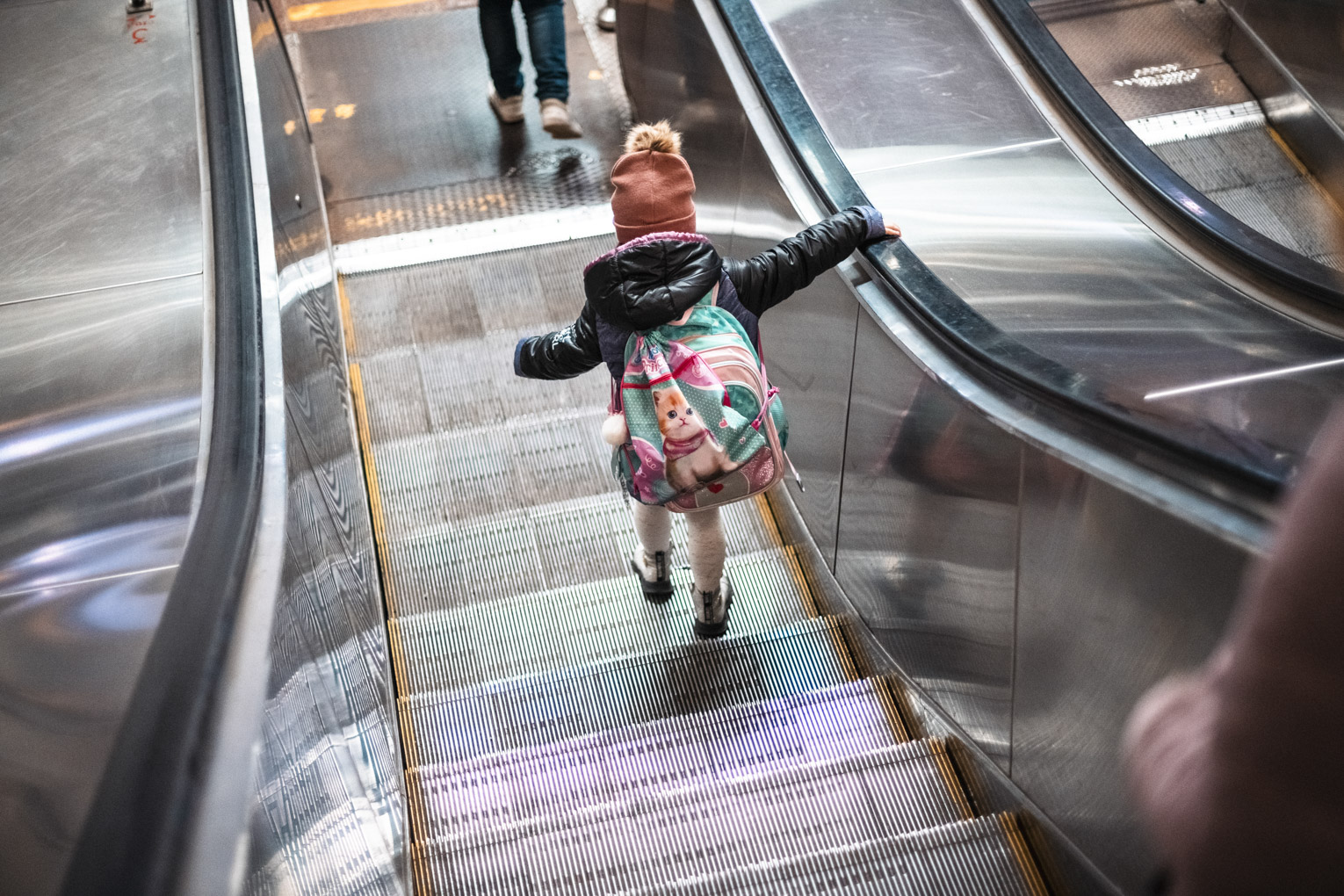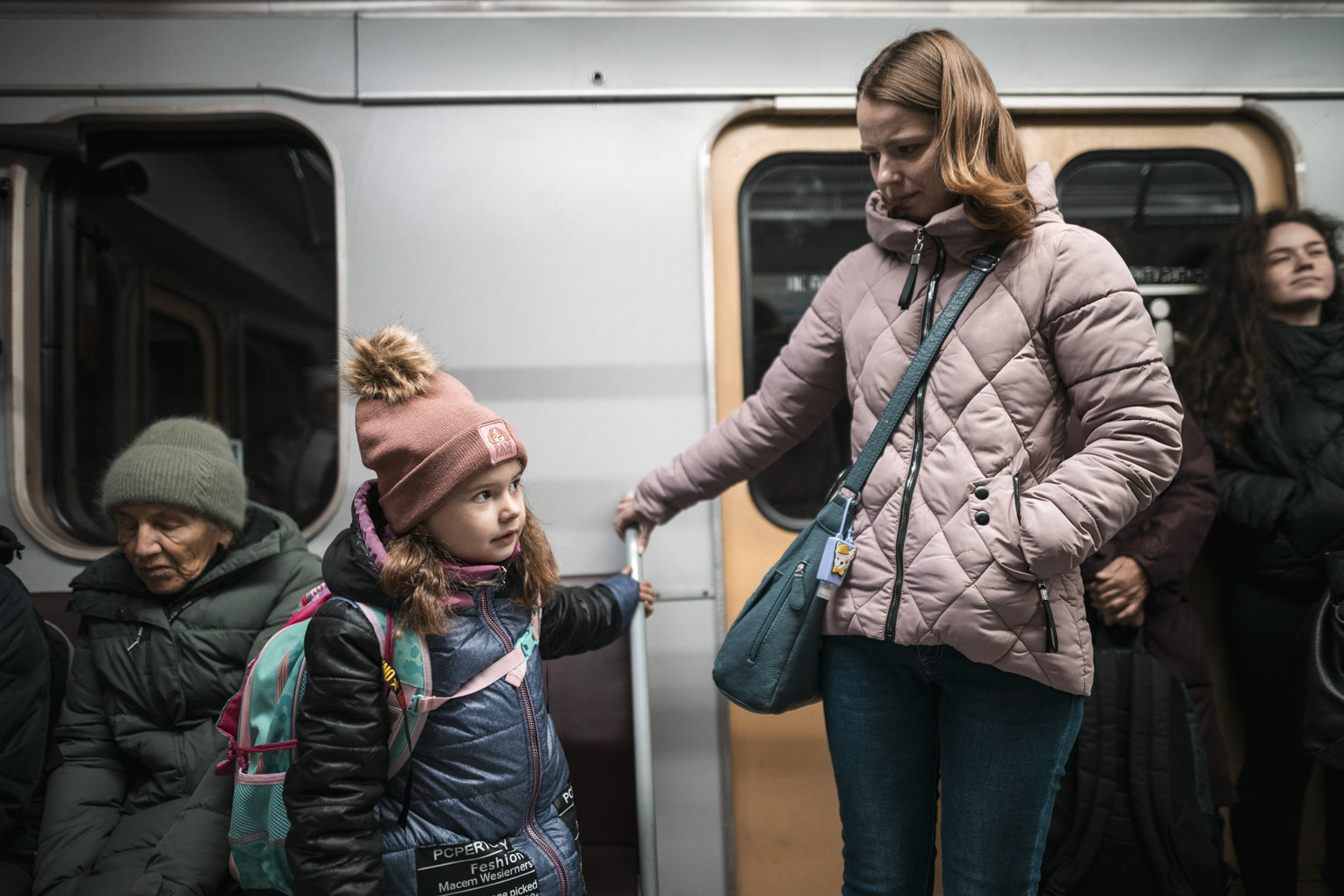Pupils in Kharkiv are now studying underground – however, metro schools are only the first line of aid for the education crisis facing the city
Schools located at Kharkiv metro stations bring together children who have persevered through the pandemic years and now live under the constant threat of air raids. Finn Church Aid arranges psychosocial support for the children so that life can slowly return to normal.
Text: Ulriikka Myöhänen
Photos: Antti Yrjönen
STAIRS TAKE you from a wide street to the underground, just like in any big city. The undulating sound of the metro echoes through the corridors. People come and go about their day, as has been done here under the eastern Ukrainian city of Kharkiv for decades.
In late 2023, it is the small people who catch your attention. They dig books out of their backpacks all the while metro trains stop at the station as scheduled.
“We have pupils from the first through to the fourth grade studying here. The morning shift includes 128 pupils. A new set of pupils will come in the afternoon”, says Anzhela Malahova, looking through a stack of papers in front of her. She goes on to say that metro schools have been set up at five Kharkiv stations.
Today, Malahova serves as the metro school’s deputy head teacher. Her own school is closed, as is also the case for all the other schools located above ground in Kharkiv. Pupils are studying remotely for the fourth year in a row: First, there was the COVID-19 pandemic and that was followed by the major Russian offensive. The war front has already moved further east, but Kharkiv is still the target of air raids. At worst, the sirens sound several times a day and it is not possible to organise classes in actual schools.
“I’m happy that we are finally able to gather together”, Malahova says, wiping the corners of her eyes and gesturing in the direction of the classrooms built at the station.
Kharkiv metro has been serving the city for half a century
The Kharkiv metro network was completed in 1975 to meet the needs of the growing city. In recent years, up to 240 million passengers have passed through its tunnels every year.
The underground network took on a new, life-protecting role starting in February 2022 when Russia launched its full-scale invasion of Ukraine. It is estimated that up to 160,000 civilians sought shelter in the metro during the worst of the fighting. As the war dragged on, the city’s education management began to consider whether metro stations could also be used as safe schools.
In autumn 2023, schools were set up at five metro stations. Now, there are children sitting at their desks and chattering happily, although they will soon settle down to study mathematics and the Ukrainian language. This is also the case for Julija Yurova, who is wearing a green dress and has her hair in a ponytail.
“I’m five years old”, the girl starts her introduction in a brisk fashion. Then, she slaps her forehead with both hands and exclaims: “No! I’m already six!”
Yurova says that she recently celebrated her birthday. She goes to school at the metro station three days a week. Julija Yurova always travels to school with her mother or father, but she seems to have no idea how many stops away home is.
“It’s not a long trip”, she says with certainty.
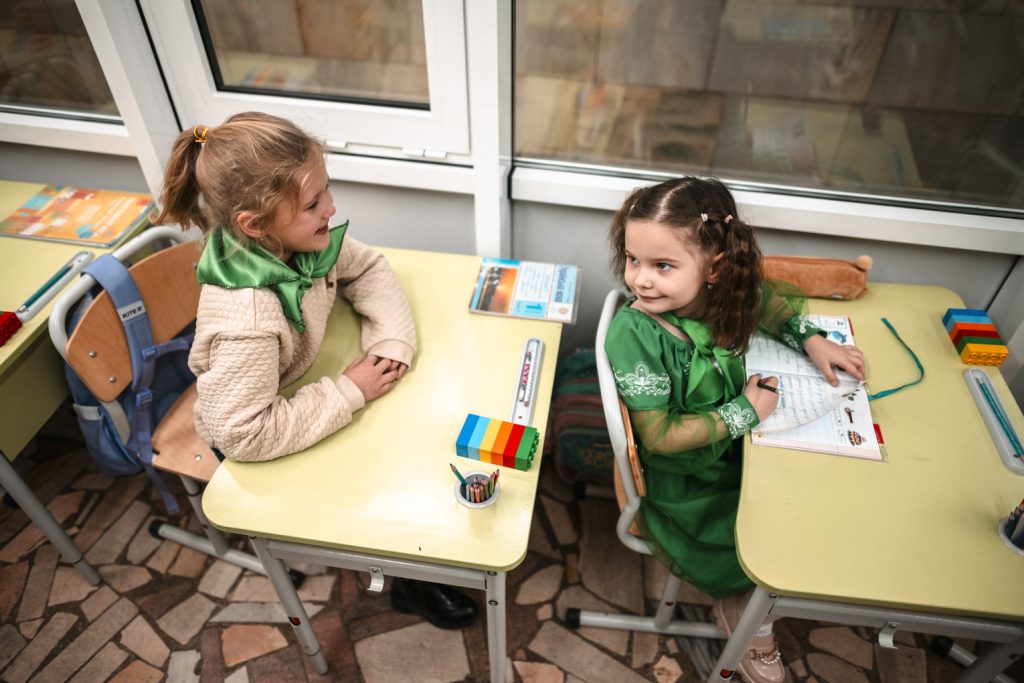
The majority of children in Kharkiv study online
Yurova and her schoolmates are lucky. Watching them bustle around, it is hard to imagine what a remote school day in front of screens would look like for the 5–9-year-olds.
However, the metro schools with their just over a thousand pupils are only the first line of aid in a situation where 110,000 children and young people are enrolled in basic education in Kharkiv. According to official data, only about half of them take part in classes which are mainly organised remotely. Many families have ended up as refugees abroad or elsewhere in Ukraine.
Julija Yurova also fled with her family, but later returned to her native city. She holds a pencil tightly in her hand and copies some squiggly letters in an exercise book. Occasionally, she lets out a frustrated snort, grabs an eraser from the drawer and wipes everything away. Learning the letters seems to be a meticulous job.
The conversation with Yurova begins to flow when the topic of the necklace hanging around her neck comes up. It says BFF on it, which is short for Best Friends Forever.
“My family and I were refugees in Ternopil in western Ukraine. I met my best friend there who gave me this piece of jewellery. Now, we go to metro school together in Kharkiv. We are three best friends in the same class”, Yurova explains.
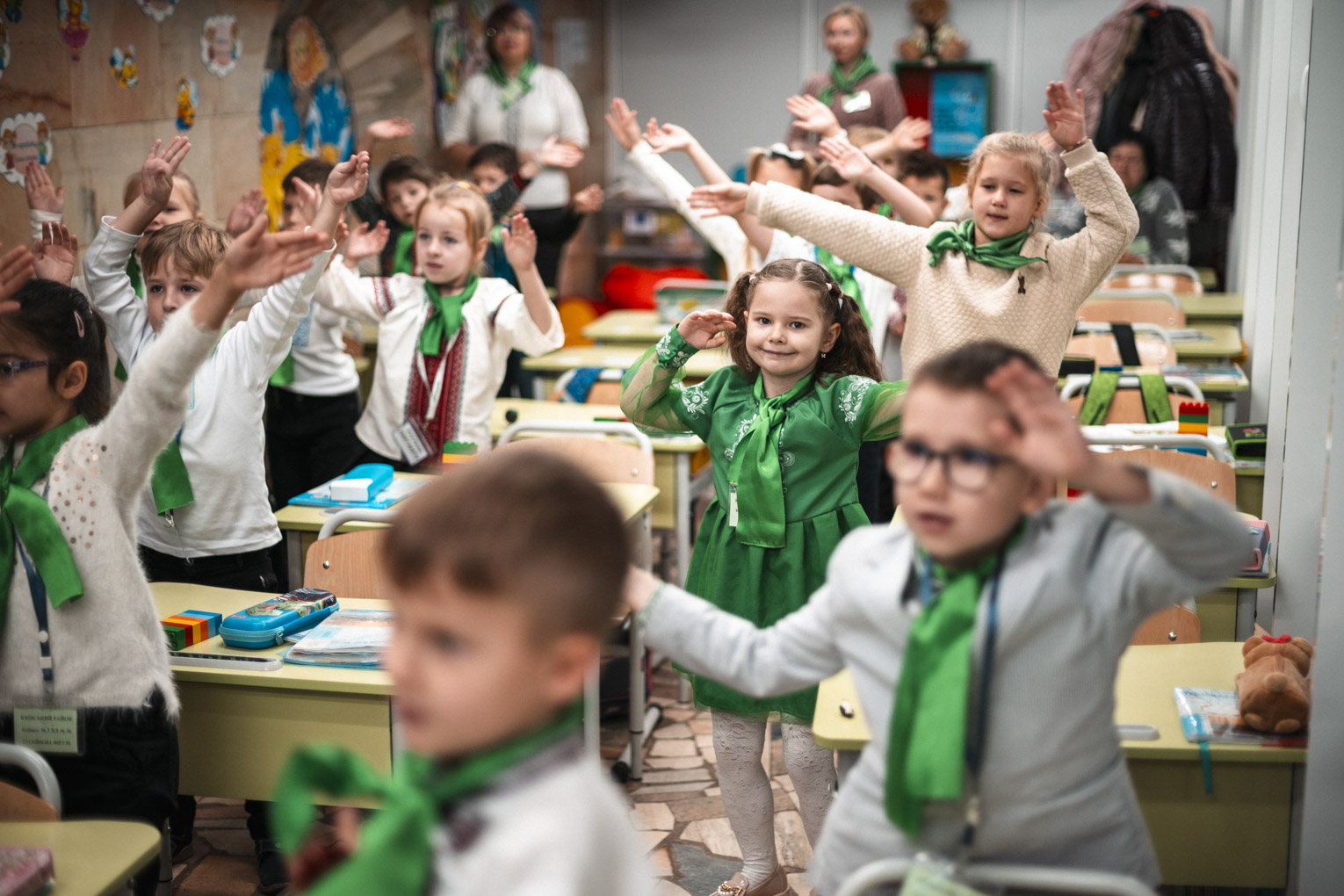
Ukrainian children need support in dealing with trauma
One Monday in November, something new is happening at the metro school. Two school psychologists trained by Finn Church Aid are coming to hold a lesson to deal with trauma through play and attend to the pupils’ psychosocial well-being.
The topic of the first lesson is emotions. The lesson starts with an exercise where each pupil introduces themselves and comes up with a funny movement or sound to accompany the introduction. The psychologists’ voices are playful like in a children’s programme and the children follow the lesson with concentration. Towards the end of the lesson, the psychologists dig out a colourful parachute, and the children burst with joy. They take turns throwing the parachute into the air and crawling under it. The roar of laughter is deafening.
“The lesson was a success. The aim was to relax the body and mind, build team spirit and play together”, says Olha Zinovieva, who has worked as a child psychologist for 14 years.
Her colleague Alina Symonenko has also worked as a psychologist in a kindergarten for 16 years. Zinovieva and Symonenko’s message is clear: Ukrainian children are carrying a heavy burden within them due to the difficult conditions. Many have attended classes remotely for years, many have family members on the front lines and loved ones of some of the children have also been killed or wounded.
“The children are more fearful and aggressive than before. They would like to talk to each other, but don’t know how because they have been alone so much. When they finally meet their peers, there’s a lot of conflict in the air. They simply don’t have the skills to deal with other children”, Symonenko says.
Encountering each other at the metro school helps the children catch up to what would be a more normal school experience, but in the big picture, returning to how things were will take a lot of time and resources. Because of the war, Ukraine has enormous needs both in terms of people’s well-being and the reconstruction of the infrastructure.
Volodymyr Grebennik, an engineer working in the Kharkiv office of Finn Church Aid, says that as many as 120 schools in the city have suffered damage in the war according to official data. Four of the schools are beyond repair and only 33 schools have already been refurbished with funds from the city. In a country at war, there is not enough money to repair all the damage. As of summer 2023, Kharkiv has been seeking external funding from abroad to enable pupils and school staff to eventually return to in-person teaching above ground.
Face-to-face learning increases interaction
At around noon, the metro school’s morning shift is over. Wearing her backpack, Julija Yurova waits for her mother, who is coming to pick her daughter up today.
“I’m glad that my child has been able to attend in-person classes starting from first grade”, says mother Natalia Yurova over the clatter of the metro as they make their way home.
“In-person teaching is really important because of the interaction. It’s much more than what I, as her mother, could offer her in homeschooling. My child is talkative and likes to be around other children. She is always eager to go to school”, the mother continues, looking at her daughter, who is sitting among her fellow passengers with her backpack.
We soon find out that Julija Yurova’s journey to school is not long indeed: Her home is only one metro stop away. She quickly jumps onto the platform, grabs her mother’s hand and waves after us.
She has a pet cat waiting for her at home.
FCA has supported Kharkiv’s metro schools in purchasing materials and offered training to teachers to provide psychosocial support lessons for the children. The work is supported by EU funding.
